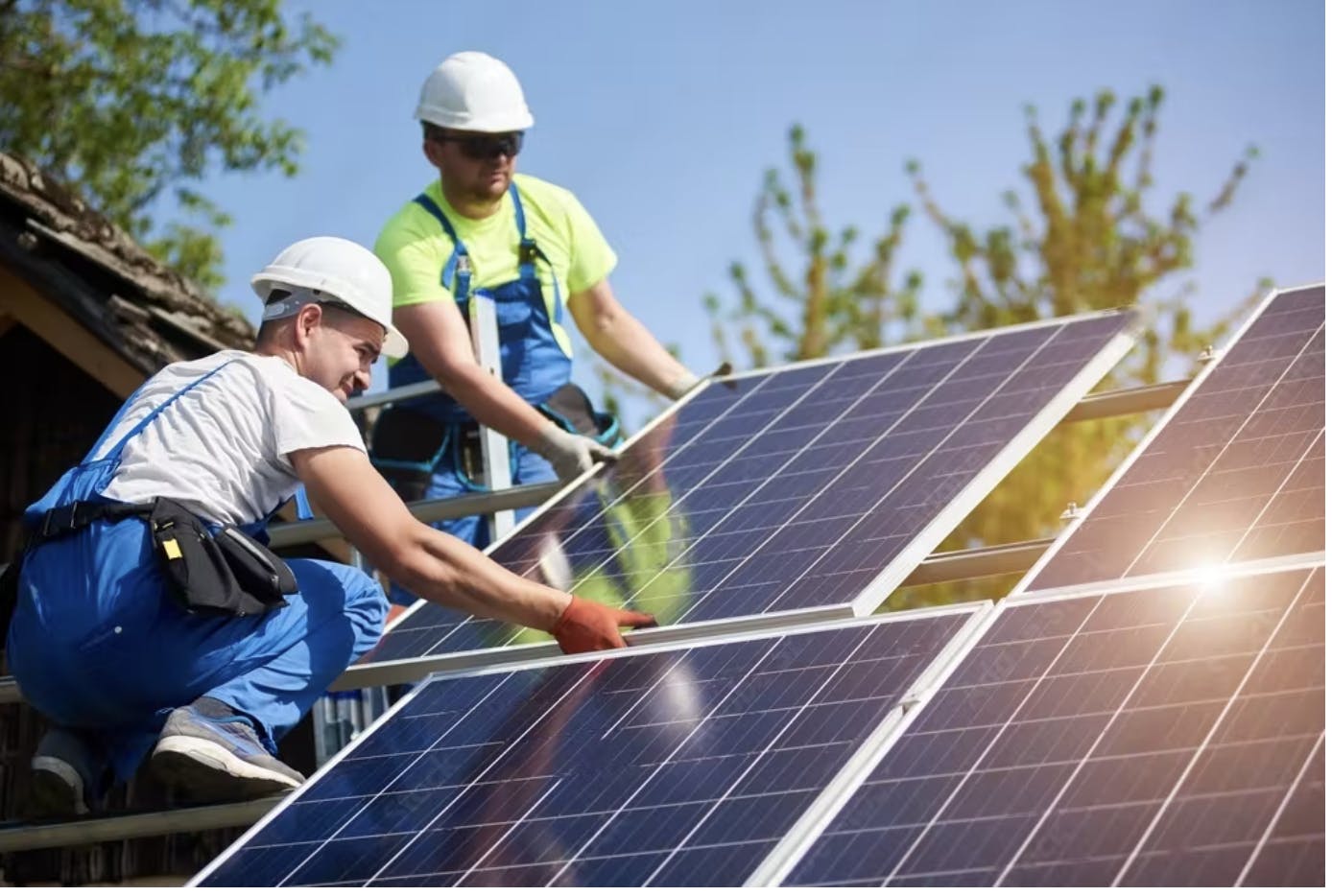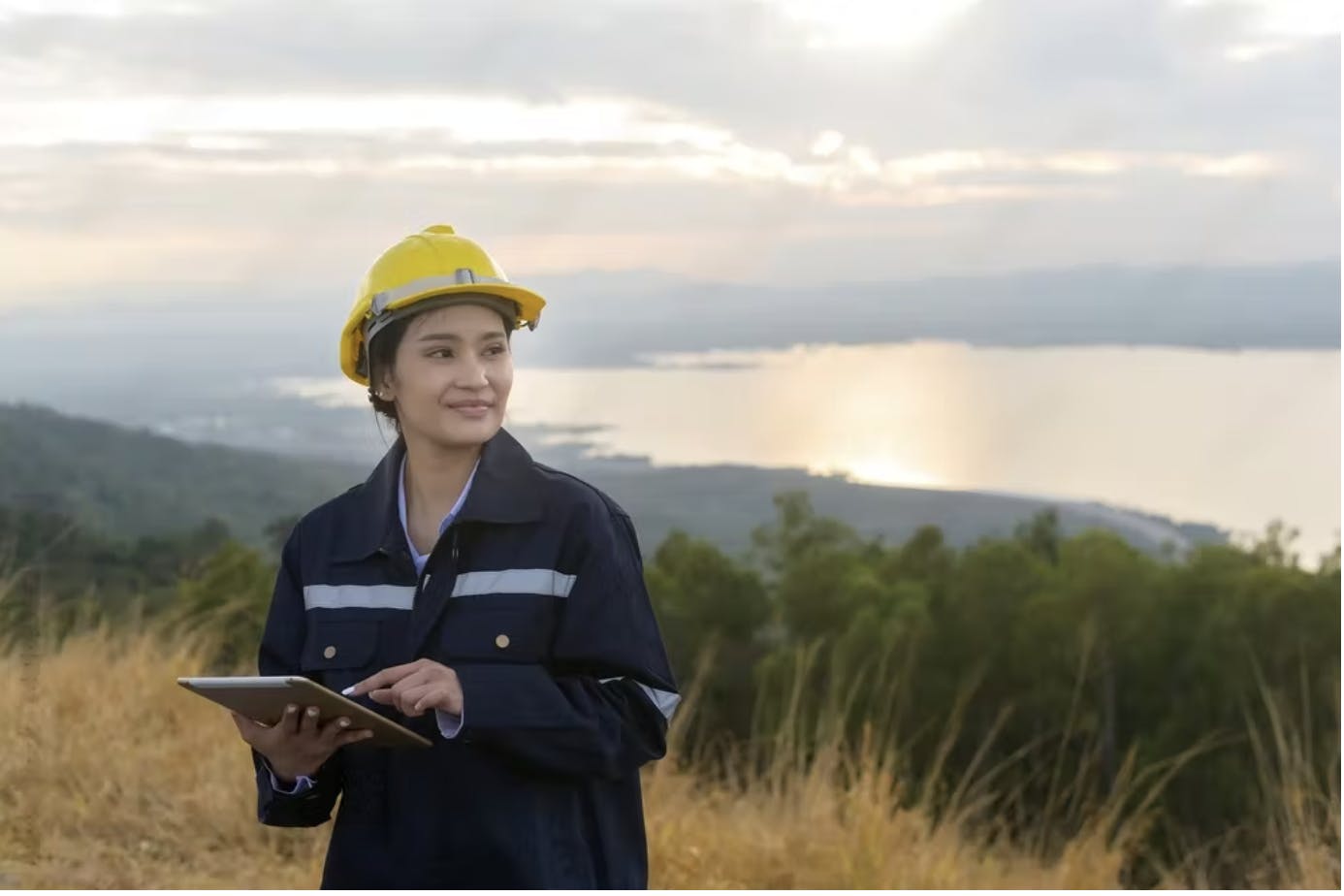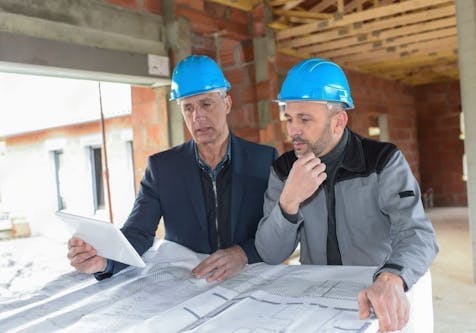Sustainability in Construction: Everything You Need to Know
Check out this guide to sustainability in construction, from the benefits and challenges to the methods used and much more

There’s no denying that the urbanisation of our planet has caused catastrophic damage to the natural environment and significantly contributed to the effects of global warming and the depletion of our natural resources.
The energy-intensive construction industry is a massive consumer of the planet’s rapidly decreasing minerals and raw materials, such as iron, sand and gravel, as well as a huge contributor to the world’s carbon emissions. As a result, this sector is under global pressure from governments and consumers to do its part to reverse the effects of the climate crisis and adopt sustainable construction practices that reduce waste, energy and the use of the world’s natural reserves.
Here, we discuss what exactly is sustainable construction, its benefits and methods, and just how this eco-friendly approach is leading to positive change in this sector.
Click on a link below to jump straight to the section you’re most interested in:
- What is sustainability in the construction industry?
- Why is sustainability important in construction?
- What factors influence sustainability in residential construction?
- What are the challenges of sustainable construction?
- What are the benefits of sustainability in residential construction?
- What are the methods of sustainable construction?
- How can we achieve sustainability in construction?
What is sustainability in the construction industry?
As many more building firms become aware of their impact on the planet, they are looking towards sustainable construction practices to help reduce waste and protect the environment. By using eco-friendly, recyclable and renewable building materials alongside greener manufacturing processes, the construction industry is taking huge strides in reducing the effects of global warming.

Why is sustainability important in construction?
The construction industry has been a major contributor to the world’s environmental problems, so sustainable building solutions are incredibly important for:
- Reducing the depletion of the planet’s natural materials.
- Ensuring less construction waste goes to landfill by recycling materials.
- Helping to produce fewer emissions through more green and efficient manufacturing processes.
- Creating buildings that conserve energy, produce less waste, and reduce the need for continued maintenance.
- Encouraging everyone involved in the building project to do their part and opt for renewable materials and sustainable techniques.
Resolving these environmental issues has become a huge focus for many building companies, particularly as they come under mounting pressure from governments and consumers to rectify their detrimental effects upon the environment.

What factors influence sustainability in residential construction?
Whether constructing a new build or renovating an existing home, many building firms are turning to sustainable solutions for their residential projects. Here’s why:
- Growing environmental concerns. Homeowners are becoming more concerned with environmental issues and playing their role in encouraging building firms to adopt more eco-friendly practices, such as opting for renewable materials that are locally sourced to minimise the overall carbon impact.
- Architects and engineers are forcing their hand. With more architects and engineers designing environmentally-friendly homes, the construction companies are being compelled to follow through with these energy-efficient plans that use greener materials and sustainable solutions, such as passive solar heating.
- Escalating costs. For any building firm, the key consideration on a project is finding the most cost-effective solution that will achieve the best results, and if sustainable materials are a more expensive option, it’s likely they won’t be used on the job. What’s more, with the cost of raw materials remaining high, construction companies will seek the most economical route. By lowering the cost of sustainable products and energy usage, construction companies are more likely to improve their sustainability efforts.

What are the challenges of sustainable construction?
Despite the construction industry recognising that green building solutions are incredibly important for the planet and future generations, it can be extremely challenging to implement sustainable residential construction measures. Here’s why:
- Construction is a complex industry. It involves efficiently managing and maintaining multiple processes and numerous subcontractors, all within a specific budget and timeframe, as well as abiding by stringent health and safety regulations. Incorporating green, sustainable practices into all these areas can be extremely challenging and time-consuming for construction companies.
- Controlling the costs of a project. As renewable and recycled materials are relatively new to the market, these products are often more expensive and, therefore, influence the budget. However, with more construction companies looking to incorporate more green materials, the prices are starting to come down, encouraging more building firms to use them.
- Unable to fully monitor sustainable practices. While many construction companies have good intentions to adopt sustainable processes into their projects, many lack the ability to monitor these practices, not to mention that of their subcontractors and suppliers. For instance, when it comes to sourcing sustainable raw materials, construction companies lack full knowledge of the supplier’s processes and carbon emissions. Therefore, it can be challenging for construction companies to be fully aware of how eco-friendly their project truly is.

What are the benefits of sustainability in residential construction?
Green homes that have been constructed using sustainable, environmentally friendly processes and materials have many benefits for the building firm, the planet and the homeowners, including:
- Healthier living conditions. Sustainable homes are built with environmentally friendly materials that contain fewer harmful chemicals and finishes, such as VOCs (volatile organic compounds), enhancing the health of the home’s inhabitants through better air quality.
- Reduced waste. By using recycled materials in the construction of a sustainable home, as well as practising waste recycling through the build process, an eco-friendly-built home ensures less waste is sent to landfill.
- Helps lower bills. Energy-efficient appliances and systems fitted into sustainable homes, such as underfloor heating and solar panels, can help cut fuel consumption bills, which is great news for homeowners.
- Lower maintenance costs. Sustainable homes are typically built with strong, durable materials that are designed to need little maintenance and last longer than many non-sustainable counterparts.
- Good resale potential. Due to their longevity, lower running costs and overall health benefits, sustainability in residential buildings is popular with buyers and retains a hefty market value.
- Reduces carbon emissions. By using renewable energy in the manufacturing processes and sourcing locally produced materials that minimise the carbon footprint, sustainable homes are doing their part to lower the construction industry’s CO2 emissions.
- Helps save the planet. Sustainable homes not only promote the wellbeing of their inhabitants, they also promote the preservation of our environment.
What are the methods of sustainable construction?
With new advances in technology, the construction industry is using innovative methods to promote sustainability in residential buildings, such as:
- Using recycled and renewable building materials. Renewable materials are a huge part of implementing sustainability in construction. New technologies have created more robust yet lighter, long-lasting building materials that can help to ensure the construction industry leaves a lighter footprint on the earth.
- Harnessing natural resources. By adopting eco-friendly residential building systems that optimise solar energy, such as passive solar design or solar panels, sustainable homes reduce the reliance on electricity or gas. It's also possible to install a greywater recycling system, which reuses laundry or bath water for other purposes, such as toilet flushing, helping to reduce overall water consumption.
- Managing and limiting waste. Rather than simply disposing of building waste to landfill, construction companies are separating materials, such as concrete and steel, to determine what can be reused or recycled, while also avoiding additional costs of disposing of toxic materials.
- Opting for green insulation. Traditional insulation materials generally contain toxic chemicals; sustainable insulation materials, such as sheeps wool, offer a safer and more natural alternative.
- Transforming existing buildings. Adapting old properties into more energy-efficient, eco homes, reduces pollution, ensures less waste, and prevents further environmental damage.
Encouraging workers to do their bit. Every little helps when it comes to saving the planet, and construction companies can start by getting employees to conserve energy and water, recycle food containers, and even refrain from smoking.

How can we achieve sustainability in construction?
Despite our continued concerns for the planet, the good news is many construction companies are recognising the significance of sustainable building methods, and are adopting green processes. Here are some simple yet effective ways your construction firm can lean into eco-friendly residential building:
- Protect the planet by utilising the planet. Adopt green systems in home construction, such as solar power and water conservation, to promote environmental protection.
- Use green materials. The answer to how to improve sustainability in construction is simple: reduce waste and carbon emissions by using renewable and recycled materials.
- Save paper by implementing technology. Replace paper estimates, calendars and notes, and switch to a super-efficient construction management software as a way to become more sustainable and productive. Online project management tools, such as Houzz Pro, will help you run your business, increase your profits, and ensure you’re doing your bit to save trees.
Conclusion
Hopefully this article has gone some way to explain the importance of adopting sustainable and green building methods, and has encouraged you to implement your own planet-friendly practices.
Discover how construction management software can transform your business processes, saving you valuable time and money.
Want to see how Houzz Pro can benefit your business? Apply for a free trial.






